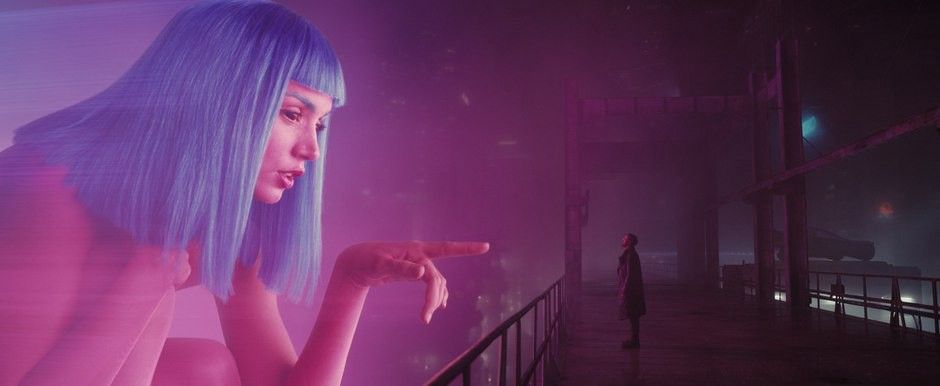The Joi of Xex
Xenoproduction in Blade Runner 2049

Recently, I have been captivated by the film Blade Runner 2049. Although thousands of analyses of this seminal movie have surely been penned already, I cannot help but add my own two cents worth to the discussion on some of the scenes and themes I found particularly affecting. Spoilers abound.
Blade Runner 2049 revolves around an LAPD detective whose serial number is often reduced to the moniker ‘K’. K is a Blade Runner, tasked with hunting down and killing defective older model ‘Replicants’ — little more than almost-human genetically engineered slaves, whom have nevertheless rebelled against their human masters. These fugitive Replicants eke out a secret existence in the shadows, where their superior strength is greatly feared by the remaining human population. The irony is that K himself is fully aware that he is a newer model Replicant, one who has been designed never to rebel.
Two of the major themes that emerge in Blade Runner 2049 are that of loneliness and alienation. In Blade Runner’s hyper-capitalist universe every last social bond has been finally drowned ‘in the icy waters of egotistical calculation’, as Marx put it. Nowhere is this profound loneliness more apparent than in the fact that K — himself an unperson — finds his only solace in his holographic AI girlfriend named Joi: a true case of boy meets URL.
Joi and Sadness
In one particularly poignant scene, Joi wishes to be intimate with K to celebrate that he may in fact be a real human-being. However, because Joi has no corporeal body, she invites a sex-worker called Mariette (surely a play on the French word ‘Marionnette’, for puppet) to stand in as a material substrate while Joi’s holographic form projects over Mariette’s physical body in order that she might engage in some semblance of physical love-making with K. K seems uncomfortable with this arrangement, but as the scene cuts to the morning after it appears the union was consummated.
Although the scene is not graphic, its prelude is deeply uncomfortable and sad. Here we find three dehumanised characters — a hologram, a sex-worker and a Replicant, trying to achieve some kind of physical and emotional union of which they have no real understanding. To paraphrase Judith Butler, their love is a copy for which there is no original.
Later on in the film, it is clear that Joi is a commentary on the online sex-industry. At one point, having categorically confirmed that he is not, in fact, human, K wanders dejectedly through the LA city-scape where he is approached by a giant holographic advertisement version of Joi, who points out that he ‘looks lonely’ and would be ‘a good Joe’. It becomes apparent that in encouraging K in his fleeting belief that he was indeed human, Joi had told K exactly what he wanted to hear (that he was ‘a real boy, of woman born’) as a kind of upselling programme.
Inspite of, or perhaps due to the commodification of sexuality in Blade Runner 2049, the happy products of natural human sexual reproduction are non-existent: one of the most striking absences in the film is that of children. Children do eventually make an appearance, but only as the inmates of an orphanage. This leads One immediately to the question; where are their parents? Are they dead or disappeared, did they abandon their children? Perhaps in such a dystopia, children are created in much the same way as the Replicants — born fully grown as they slip from a womb-like plastic envelope: yet another commodity to be cast aside when bored like so much detritus. It is no coincidence that on his way to the orphanage K flies over the landscape of a gigantic junk yard.
In contrast to the disposability of children by the human population in Blade Runner 2049, stands the desperate search of the renegade Replicants to locate a fabled Replicant child, whom they believe will prove their freedom by their being able to give birth to children of their own. K and the Replicant’s obsession with their provenance and progeny shows that while with modern contraception we are entirely used to sex being separated from reproduction, we are not yet fully reconciled with the idea of reproduction being separated from sex. In the Blade Runner 2049 universe, the outsourcing of the joyful creation of new life to a mere productive process has caused sex to become Xeno-reproduction: Xenoproduction, or even more concisely; Xex.
